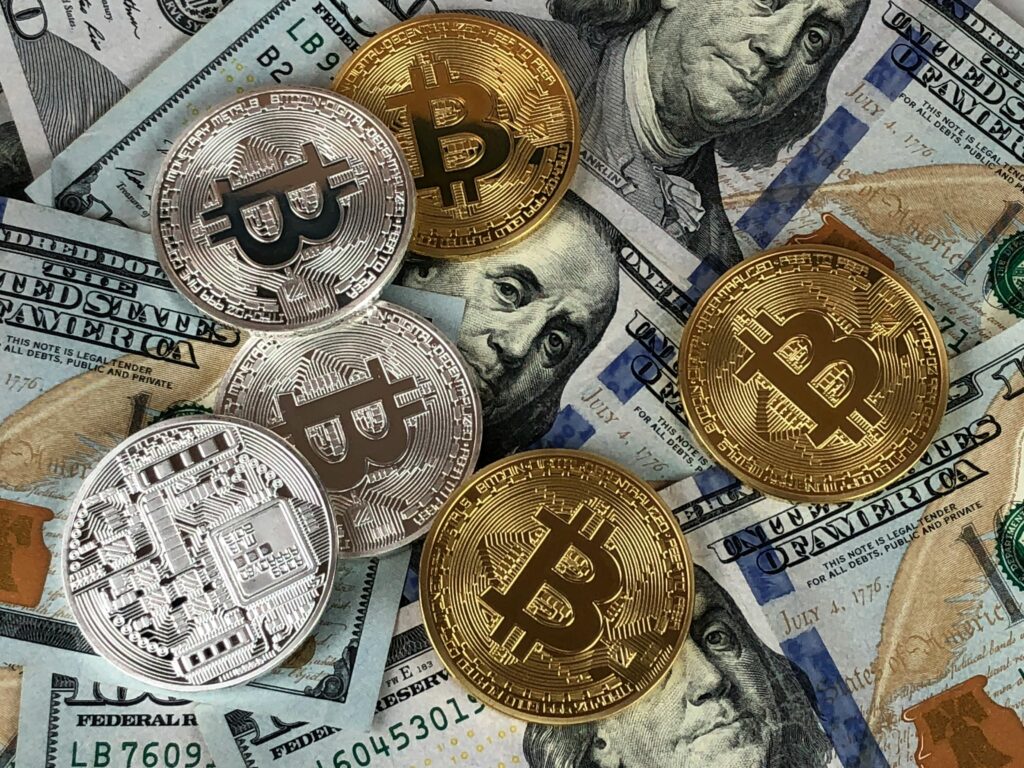Center for Quantitative Finance & Financial Technology Education
Technology plays a pivotal role in global finance, driving innovation, efficiency, and transforming how financial markets, institutions, and individuals operate. Over the past few decades, technology has radically reshaped the financial landscape, impacting everything from daily banking to large-scale global financial transactions. Here’s a breakdown of the key ways technology influences global finance:
Digital Payments & MobileBanking
Global Reach: Technology has revolutionized digital payments, enabling instantaneous, cross-border transactions without the need for physical infrastructure. Mobile payment solutions like PayPal, Venmo, Alipay, and WeChat Pay have become ubiquitous, allowing people worldwide to transfer money, make payments, and manage financial transactions directly from their mobile devices.
Financial Inclusion: FinTech solutions enable unbanked populations to access financial services through smartphones, bypassing the need for traditional banking infrastructure.
Blockchain and Cryptocurrencies
Decentralization: Blockchain technology, the backbone of cryptocurrencies like Bitcoin, Ethereum, and Ripple, has introduced the concept of decentralized finance (DeFi), which eliminates intermediaries (such as banks) from financial transactions. This reduces costs and increases transaction efficiency, particularly in international money transfers.
Smart Contracts: Blockchain also enables smart contracts, which automate financial agreements and settlements without human intervention. This has applications in sectors like real estate, insurance, and corporate finance.
Cross-Border Payments: Traditional cross-border payments can be slow and costly. Cryptocurrencies enable faster, cheaper, and more secure international money transfers.
Artificial Intelligence and Machine Learning
Data Analysis and Predictive Analytics: AI and ML are transforming how financial institutions analyze large volumes of financial data. These technologies enable the creation of predictive models to forecast market trends, assess risks, and make real-time decisions. AI is also used in algorithmic trading, where automated systems analyze data and execute trades based on predefined criteria, often much faster than human traders.
Fraud Detection and Risk Management: AI-based algorithms can detect patterns in data to identify fraudulent activities or risks, helping financial institutions mitigate financial crimes such as money laundering and credit card fraud.
Robo-Advisors: AI is also powering robo-advisors, automated platforms that provide financial advice or manage investments for individuals at a lower cost compared to traditional financial advisors.
Big Data and Data Analytics
Personalized Financial Services: Big data allows financial institutions to analyze vast amounts of customer data, providing personalized services and products tailored to an individual’s spending habits, preferences, and financial goals.
Risk Assessment and Credit Scoring: Traditional credit scoring methods are being enhanced using big data and analytics. By incorporating alternative data sources (e.g., social media activity, payment history), financial institutions can make more accurate risk assessments and expand access to credit.
Cloud Computing
Cost Reduction and Scalability: Cloud computing has allowed financial institutions to lower costs by eliminating the need for on-site infrastructure. By leveraging the cloud, companies can scale their operations more efficiently, providing access to a range of financial products and services at a global level.
Data Storage and Security: Cloud-based solutions enable secure, real-time access to financial data while offering enhanced backup and recovery systems in case of data breaches or system failures.
Regulatory Technology
Compliance Automation: The increasing complexity of global financial regulations has led to the rise of RegTech, which uses technology to help companies comply with laws and regulations more efficiently. RegTech solutions help financial firms monitor transactions, detect suspicious activities, and ensure compliance with anti-money laundering (AML) and know-your-customer (KYC) requirements.
Global Standards: With the globalization of financial markets, RegTech ensures that financial institutions are meeting the regulatory requirements of different countries or regions, streamlining compliance processes.
Financial Market Infrastructure
Algorithmic and High-Frequency Trading (HFT): Technology enables financial markets to operate in real-time, with high-frequency trading algorithms executing orders at lightning speed, often with no human intervention. This increases market liquidity and can also contribute to greater market efficiency.
Electronic Trading Platforms: Trading on global financial markets is increasingly being done through electronic platforms like the New York Stock Exchange and Nasdaq, which provide faster, more efficient, and transparent trading environments. These platforms support stock exchanges, foreign exchange, commodities, and derivatives markets.
Financial Technology (FinTech) Startups
Disrupting Traditional Finance: FinTech startups have introduced innovative financial products and services, leveraging technology to offer more user-friendly, accessible, and often lower-cost alternatives to traditional banks and financial services. Examples include digital wallets, peer-to-peer lending, crowdfunding, and mobile insurance platforms.
Peer-to-Peer Lending: Technologies like blockchain, AI, and cloud computing are enabling peer-to-peer lending platforms to emerge globally, creating new avenues for borrowing and lending outside traditional banking systems.
Cybersecurity and Financial Security
Protecting Financial Data: As financial transactions become more digital, protecting sensitive financial data becomes crucial. Advanced cybersecurity technology is required to safeguard banking systems and customer data from cyber threats like hacking, phishing, and ransomware attacks.
Biometric Authentication: The use of biometric technologies (fingerprint scanning, facial recognition) is becoming common in securing financial transactions, adding an additional layer of security for digital payments and banking apps.

Certificate Program in Financial Engineering
Focus on learning programming languages like Python and R specifically for financial data analysis and building finance applications.
Duration: 7-12 Months
Eligibility:
- Bachelor’s in Engineering, Finance, Mathematics, Statistics, or Economics
- Basic programming skills in Python or R and a math background preferred
Mode: Online
Assistance: Internship / Placement

Certificate Program in AI for Finance
A blend of finance and data science, focusing on financial data analysis using Python, machine learning, and big data techniques.
Duration: 9-12 Months
Eligibility:
- Graduate in Finance, Computer Science, Engineering, or related disciplines
- Knowledge of Python and statistics recommended
Mode: Online
Assistance: Internship / Placement

Certificate Program in
Quantitative Finance and Risk Management
Learn how to apply mathematical techniques and technology to solve problems in finance, such as algorithmic trading and risk management.
Duration: 6 Months
Eligibility:
- Bachelor’s in Finance, Economics, Mathematics, Engineering, or Science
- Familiarity with Excel, statistics, and probability is helpful
Mode: Online
Assistance: Internship / Placement

Post Graduate Program
in Algorithmic Trading
Learn how to build financial models, use Excel and financial software tools, and value assets.
Duration: 8 Months
Eligibility:
- Graduates or final-year students in Engineering, Finance, Computer Science.
- Suitable for professionals in financial markets or technology
Mode: Online
Assistance: Internship / Placement
Coming Soon!
Finance Courses with Fintech Focus:

Programming for Finance
Focus on learning programming languages like Python and R specifically for financial data analysis and building finance applications.

Data Science for Finance
A blend of finance and data science, focusing on financial data analysis using Python, machine learning, and big data techniques.

Quantitative
Finance
Learn how to apply mathematical techniques and technology to solve problems in finance, such as algorithmic trading and risk management.

Financial Modeling
Learn how to build financial models, use Excel and financial software tools, and value assets.
Technology Courses for Finance Careers

Machine Learning for Finance
Learn how machine learning can be applied to financial models, stock predictions, and portfolio management.

Blockchain and Cryptocurrency
Learn about the intersection of finance and technology, covering topics like blockchain, digital payments, and data analytics in finance.

Cloud Computing for Financial Services
Understand how cloud services like AWS, Azure, and Google Cloud are being integrated into the finance sector.
General Finance Courses (Tech Enhanced)

Financial
Markets
Learn about how financial markets operate with an introduction to technology tools used in trading.

Investment Management & Strategy
Explore investment principles, strategies, and how technology is used to analyze markets and investments.
Technology is no longer just an enabler of global finance—it is its driving force. From streamlining operations and enhancing financial inclusivity to creating new markets and financial products, technology continues to transform the global financial landscape. The future of global finance will undoubtedly be shaped by emerging technologies like blockchain, AI, quantum computing, and 5G, which will further increase the speed, security, and accessibility of financial services worldwide.
